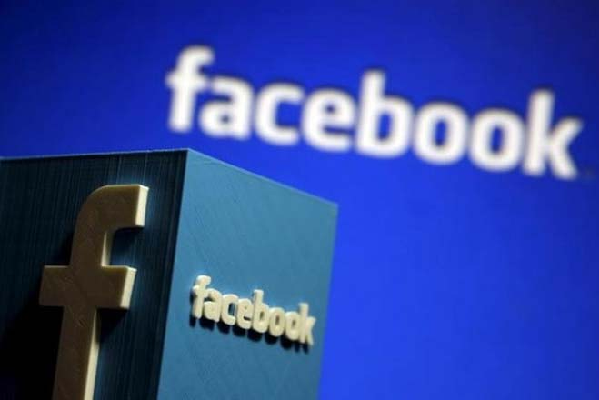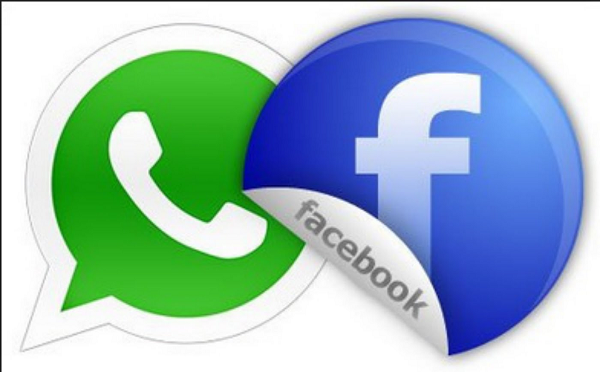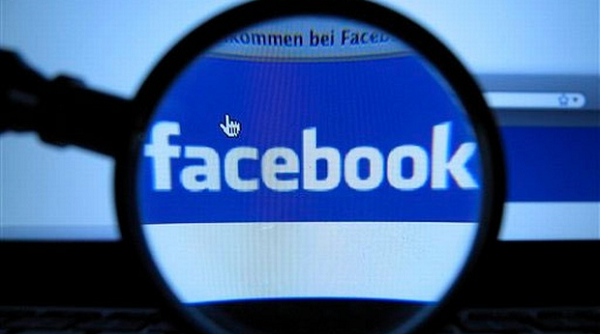
by admin | May 25, 2021 | Markets, Media, News, Technology
 San Francisco, (IANS) Microsoft and Facebook have joined hands to build a new, state-of-the-art subsea cable across the Atlantic Ocean that will help meet the growing customer demand for high speed, reliable connections for cloud and online services for Microsoft, Facebook and their customers.
San Francisco, (IANS) Microsoft and Facebook have joined hands to build a new, state-of-the-art subsea cable across the Atlantic Ocean that will help meet the growing customer demand for high speed, reliable connections for cloud and online services for Microsoft, Facebook and their customers.
The 6,600 km MAREA cable will be the highest-capacity subsea cable to ever cross the Atlantic — eight fibre pairs and an initial estimated design capacity of 160 Tbps, the companies said in a statement on Friday.
The construction of the cable will commence in August 2016 and is expected to be completed in October 2017.
“As the world is increasingly moving toward a future based on cloud computing, Microsoft continues to invest in our cloud infrastructure to meet current and future growing global demand for our more than 200 cloud services, including Bing, Office 365, Skype, Xbox Live and the Microsoft Azure platform,” explained Christian Belady, general manager, datacenter strategy, planning and development, Microsoft Corp.
Microsoft and Facebook are collaborating on this system to accelerate the development of the next-generation of internet infrastructure and support the explosion of data consumption and rapid growth of their respective cloud and online services.
The submarine cable system, to be operated and managed by Telxius, Telefonica’s new telecommunications infrastructure company, will also be the first to connect the US to southern Europe — from the data hub of Northern Virginia to Bilbao, Spain and then to network hubs in Europe, Africa, the Middle East and Asia.
Telxius will serve as the operator of the system and sell capacity as part of their wholesale infrastructure business.
This route is south of other transatlantic cable systems, thereby helping ensure more resilient and reliable connections for customers in the US, Europe and beyond.
The team has designed MAREA to be interoperable with a variety of networking equipment.
This new “open” design brings significant benefits for customers: lower costs and easier equipment upgrades which leads to faster growth in bandwidth rates since the system can evolve at the pace of optical technology innovation.
“The MAREA transatlantic cable we’re building with Facebook and Telxius will provide new, low-latency connectivity that will help meet the increasing demand for higher-speed capacity across the Atlantic. By building the cable along this new southern route, we will also increase the resiliency of our global network, helping ensure even greater reliability for our customers,” Belady noted.
According to Najam Ahmad, vice president of network engineering at Facebook, the company wants to make it possible for people to have deep connections and shared experiences with the people who matter to them most – anywhere in the world, and at any time.
“We’re always evaluating new technologies and systems in order to provide the best connectivity possible. By creating a vendor-agnostic design with Microsoft and Telxius, we can choose the hardware and software that best serves the system and ultimately increase the pace of innovation,” Ahmad added.

by admin | May 25, 2021 | Markets, Social Media, Technology
 Washington, (IANS) Social networking giant Facebook is reportedly planning to close FBX — an ad exchange that allows advertisers to buy desktop ads, media reports said on Thursday.
Washington, (IANS) Social networking giant Facebook is reportedly planning to close FBX — an ad exchange that allows advertisers to buy desktop ads, media reports said on Thursday.
According to Tech Crunch, Matt Idema, vice president of monetization product marketing at Facebook confirmed to them that this is part of Facebook’s shift to mobile.
“Mobile is now a necessary component of effective marketing campaigns, and Facebook is helping millions of businesses understand their customers’ purchase path across devices,” he said.
“Dynamic Ads and Custom Audiences have mobile at their core and are delivering excellent results for businesses, so Facebook Exchange spending has shifted towards those solutions,” he added.
Facebook unveiled FBX in 2012. Lately, the social networking website is being shifted to mobile advertising for better revenues.
Facebook has also started selling video ads via its Audience Network platform.

by admin | May 25, 2021 | Markets, Technology
 New York (IANS) Social media giant Facebook has made available its WhatsApp instant messaging smartphone service on Mac and Windows desktops, media reports said on Wednesday.
New York (IANS) Social media giant Facebook has made available its WhatsApp instant messaging smartphone service on Mac and Windows desktops, media reports said on Wednesday.
“The new desktop app mirrors your mobile device, allowing you to message friends and family while your phone is in your pocket,” CNET.com quoted WhatsApp as saying.
Because it runs natively on your desktop as opposed to through an app on your browser, the app allows for native notifications and better keyboard shortcuts, WhatsApp said in a post.
The app runs on Windows 8 and above and Mac OS 10.9 and above. To sync the newly-launched Facebook-owned desktop app with smartphone, open the app and scan the QR code with your phone.
After several months of beta testing, Facebook recently rolled out Facebook and Messenger apps on Windows 10. The company also updated photo-sharing Instagram app for Windows 10 mobile.
Facebook for Windows 10 starts and loads News Feed much faster than previous Facebook desktop applications.
The new app has built-in desktop notifications feature and a user can pin a new Facebook Live Tile that will show the user latest updates from friends, family and Pages.
Meanwhile, the Messenger for Windows 10 has features, including stickers, group conversations and GIFs.
The Messenger for Windows has native desktop notifications and a feature that lets a user see unread messages with a “Live Tile”.

by admin | May 25, 2021 | Markets, Technology
 New York (IANS) A San Francisco federal judge on Friday ruled against a request by Facebook to dismiss a lawsuit alleging that the social networking giant’s photo tagging system violates user privacy.
New York (IANS) A San Francisco federal judge on Friday ruled against a request by Facebook to dismiss a lawsuit alleging that the social networking giant’s photo tagging system violates user privacy.
The lawsuit alleges that Facebook’s biometric software violates Illinois’s biometric information privacy act by violating user privacy as it creates faceprints without explicit consent, The Verge reported.
The digital faceprints are used to identify users to suggest tags for uploaded photos.
The photo-tagging system is disclosed in the company’s privacy policy.
User can opt out of it but it is unclear whether those measures will satisfy the legal definition of consent, the report added.
“The court accepts as true plaintiffs’ allegations that Facebook’s face recognition technology involves a scan of face geometry that was done without plaintiffs’ consent,” the judge ruled.
“This lawsuit is without merit and we will defend ourselves vigorously,” a Facebook spokesperson had earlier said.
But with the fresh decision, the plaintiffs — Carlo Licata, Adam Pezen and Indian-origin Nimesh Patel — have a valid claim under the Illinois biometrics law and the case can proceed.
This is not the first time Facebook’s photo tagging policy has faced criticism.
According to a report in the Tribune, this feature is unavailable in Europe as privacy concerns forced Facebook into deleting the geometric face data of its European users from its database.
Facebook had launched the photo-tagging system six years back.

by admin | May 25, 2021 | World
 London : (IANS) As Apple battles the US government over encryption to unlock an iPhone used by an attacker in a mass shooting in San Bernadino last year, top US companies Google, Facebook and Snapchat are expanding encryption of user data in their services, media reported.
London : (IANS) As Apple battles the US government over encryption to unlock an iPhone used by an attacker in a mass shooting in San Bernadino last year, top US companies Google, Facebook and Snapchat are expanding encryption of user data in their services, media reported.
According to The Guardian, while Whatsapp is set to roll out encryption for its voice calls in addition to its existing privacy features, Google is investigating “extra uses” for encryption in secure email.
Social networking giant Facebook too is working on to better protect its Messenger service.
The popular messaging service Snapchat is also considering a more secure messaging system.
Apple, which is expected to appear in a federal court in California on March 22 to fight the order, has accused the US Department of Justice (DoJ) of trying to “smear” the company with “desperate” and “unsubstantiated” claims.
It followed the Justice Department’s latest court filing over its demand that Apple create software to unlock an iPhone used by an attacker in a mass shooting last year, BBC reported.
The department said that Apple’s stance was “corrosive” of institutions trying to protect “liberty and rights”.
It also claims Apple helped the Chinese government with iPhone security.
Apple’s general counsel Bruce Sewell said: “The tone of the brief reads like an indictment.”
He said: “Everybody should beware because it seems like disagreeing with the Department of Justice means you must be evil and anti-American, nothing could be further from the truth.”
Prosecutors claim Apple’s own data shows that China demanded information from Apple regarding more than 4,000 iPhones in the first half of 2015, and Apple produced data 74 percent of the time.
But Sewell said the new filing relies on thinly sourced reports to inaccurately suggest that Apple had colluded with the Chinese government to undermine iPhone buyers’ security.
The US government has been fighting Apple over access to information on the iPhone used by one of the San Bernardino killers, Rizwan Farook, in December. Apple says the demands violate the company’s rights.
The Department of Justice claimed in its court filing that Apple had attacked the FBI investigation as “shoddy”, and tried to portray itself as a “guardian of Americans’ privacy”.
This “rhetoric is not only false, but also corrosive of the very institutions that are best able to safeguard our liberty and our rights: The courts, the Fourth Amendment, longstanding precedent and venerable laws, and the democratically elected branches of government,” the DoJ said.
In February, the FBI obtained a court order to force Apple to write new software that would allow the government to break into the phone. The FBI wants the software to bypass auto-erase functions on the phone.
Apple has argued that the government is asking for a “back door” that could be exploited by the government and criminals.

 San Francisco, (IANS) Microsoft and Facebook have joined hands to build a new, state-of-the-art subsea cable across the Atlantic Ocean that will help meet the growing customer demand for high speed, reliable connections for cloud and online services for Microsoft, Facebook and their customers.
San Francisco, (IANS) Microsoft and Facebook have joined hands to build a new, state-of-the-art subsea cable across the Atlantic Ocean that will help meet the growing customer demand for high speed, reliable connections for cloud and online services for Microsoft, Facebook and their customers.



